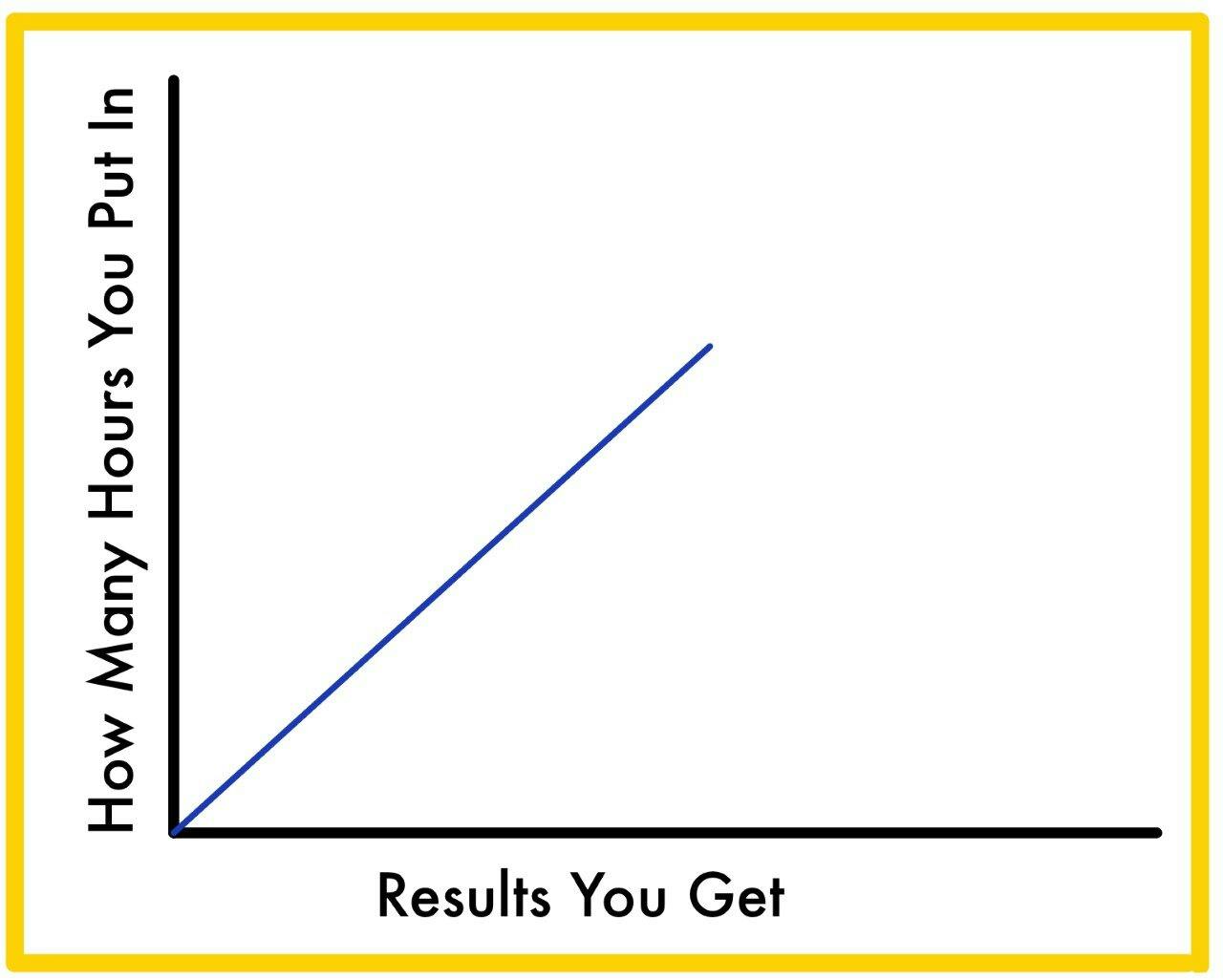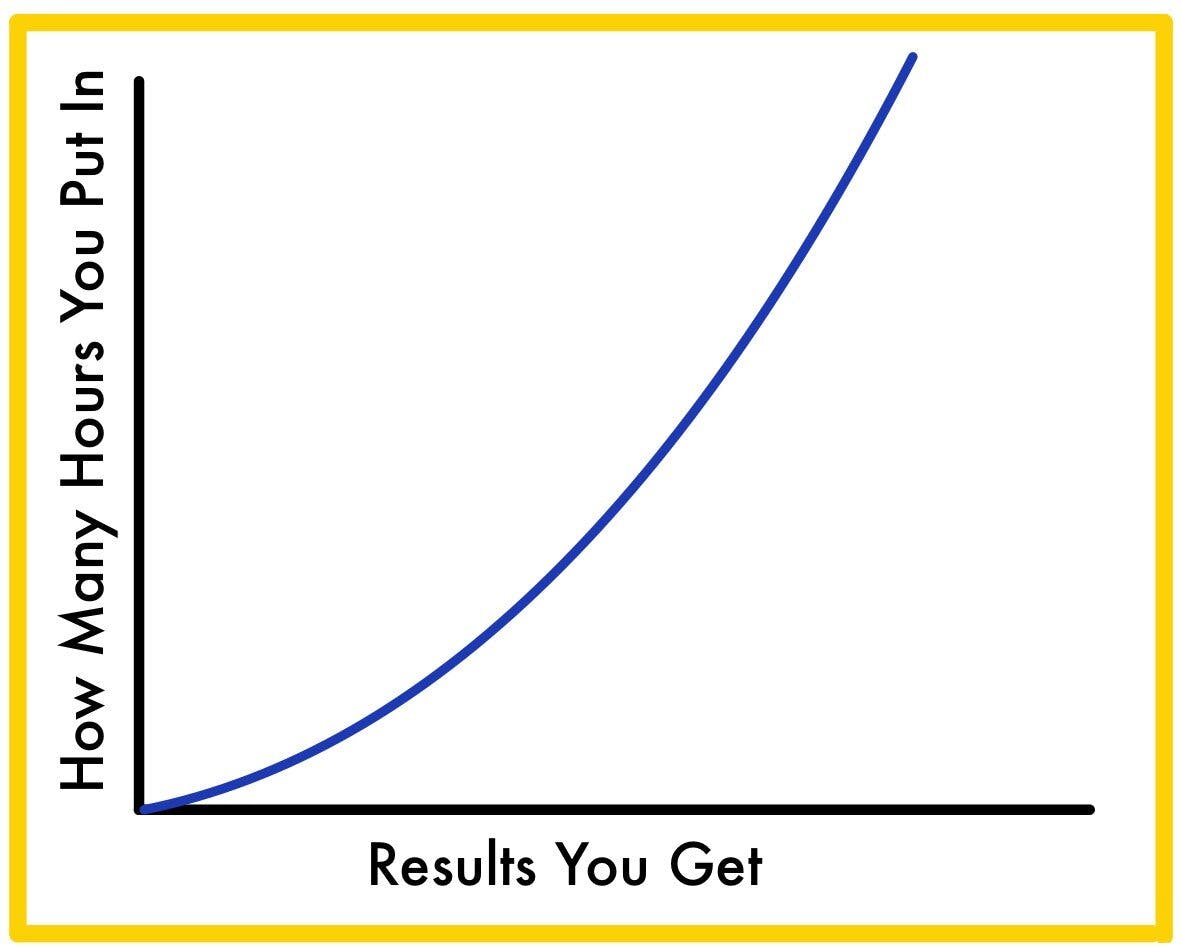Do Things that Have Greater Outputs than Your Inputs
What do you think about when you do something? How it makes you feel? Return on Investment? Or you don’t think at all?
In this essay, I want to share a way to filter the things you do.
I want to begin by telling you a story.
During high school, I started a digital marketing agency where I help businesses with social media and marketing. I had no expenses and every dollar I would make would be 100% profit.
That wasn’t enough, so I learned about investing so the money I had could grow and make more money. I read many books and articles not only about investing but also about statistics, history, and game theory. All with one purpose: master the investment world.
It turns out, investing isn’t just buying companies and waiting until you grow old (this is known as holding) but you can also trade, which is buying and selling stocks for a shorter period of time. If you bought and sold on the same day, you’d be doing day trading and if you bought and sold in a few weeks or even months, you’d be doing swing trading. Makes sense? Cool.
So I started my investing journey, and I tried all of them and I realized the difficulty and risks.
And long story short, I realized I spent way too much time trading and “playing around” with stocks, but most importantly I realized I should do things that have a greater output than my input.
What I mean is that for me, making money trading stocks requires my time and my earnings would be moderately proportional to the time spent.
Similarly, when you get a job at a local store, your inputs (how many hours you work) and your outputs (how many hours you get paid) are strongly correlated.
Let’s take a look!

This is all good, most people are like this.
However, not everything you do has to look like the graph above. There are “high-leverage” activities you can do where your inputs have greater outputs.
This what it looks like when you do something high-leverage.

Slow in the beginning and it gets faster as time passes by.
Hold on a second. What even is high leverage?
Activities that don’t take more time, money, or resources as more people engage with them.
Imagine you’re making a podcast episode, it costs you the same when either 2 or 200,000 people listen to it. You don’t need to put in more time, money, or resources as more people listen to it.
Another example could be becoming a teacher at a local school who needs to be there to teach one classroom at a time. Or becoming an online teacher that doesn’t need to be there to teach billions of students at any time, anywhere.
Or writing an essay like this one, once I write it and publish it. It can be read again and again anywhere in the world at any time. See the difference?
That’s why I stopped trading stocks (I still invest long-term) because 1) I wasn’t building or creating value for society, 2) I needed to be there to make money, 3) My inputs (how many hours I put in) and outputs (the results/earned) were moderately correlated.
High Leverage Activities
Let’s talk about a few examples that may serve as inspiration.
-
Starting a YouTube Channel
-
Starting a podcast
-
Writing online
-
Building a brand on social media
-
Code (one of the most powerful)
-
Building businesses, games, etc.
-
Sometimes, you don’t even need to code. Check this out!
-
These examples are mostly irrelevant, and what you should focus on is understanding why these activities are high leverage. That way, you can create and develop your own unique high leverage activities.
Be Oddly Curious
I won’t tell you, “Go find the hottest job or opportunity.” But I’ll ask you, “What is something you’re oddly and genuinely curious about?”
Then, you can focus on what you’re curious about by doing high leverage activities. We are one of the most fortunate generations, and it’s not because of social media. Well, social media actually gives you a lot of leverage.
Want to read more about leverage? Need more resources? Check out this essay.
If you’re into interesting ideas (like the one you just read), join my Weekly Memos., and I’ll send you new essays right when they come out.